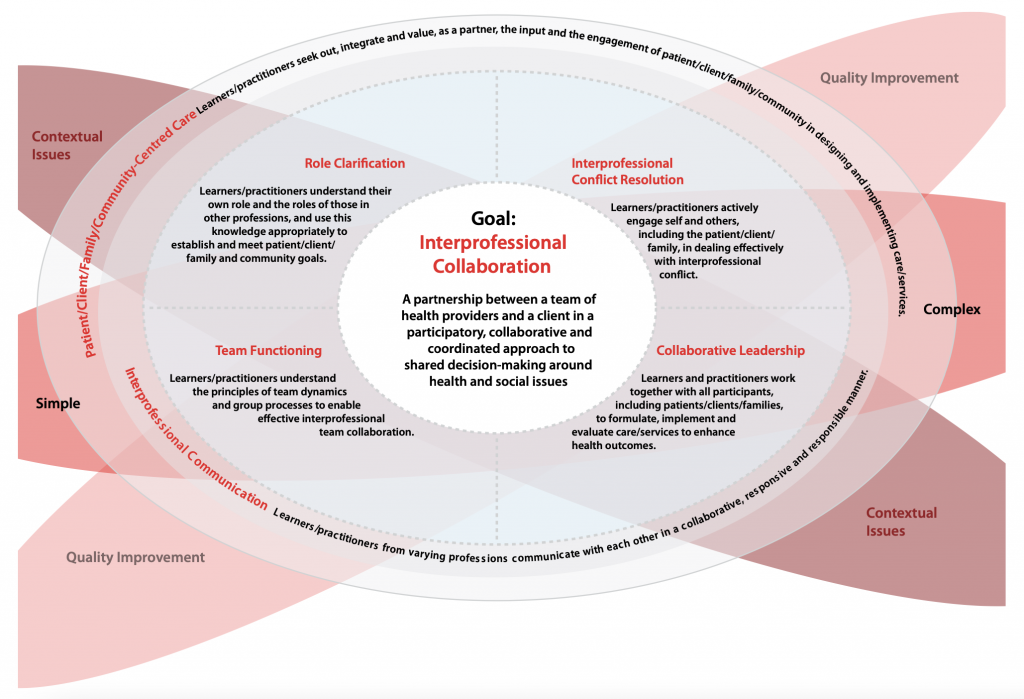Interprofessional Communication and Collaboration
Interprofessional communication and collaboration are integral components for safe client care and optimal health outcomes. Collaborating and communicating effectively with members of an interprofessional team will strengthen and support shared plans of care for all clients, families and communities (Canadian Interprofessional Health Collaborative, 2010).
Strategies for effective interprofessional communication include:
- Establishing teamwork communication principles to foster open discussions, decision making.
- Recognizing and appreciating each team member’s role and contribution.
- Developing trusting, respectful relationships with other team members.
- Being aware of potential power differentials with the client, team members, and within healthcare institutions.
- Actively listening to other team members, asking questions for clarification, and responding appropriately.
- Communicating clearly to ensure common understanding of client care decisions.
- Utilizing information and communication technology (telephone, computers, and software programs) to facilitate communication.
Factors Influencing Interprofessional Communication:
Ineffective Communication can occur with the following:
To prevent ineffective communication, healthcare team members need to incorporate interprofessional communication principles and strategies to work together for safe client care.
In an effort to advance interprofessional collaboration amongst healthcare providers, the Canadian Interprofessional Health Collaborative developed a National Interprofessional Competency Framework, as shown in Figure 1.1.

Figure 1.1: National Interprofessional Competency Framework
This framework includes six interdependent competencies which are important for interprofessional team members to work collaboratively to assist clients in reaching their health goals (Canadian Interprofessional Health Collaborative, 2010).
The competencies include:
- Interprofessional Communication
- Patient/client/family/community-centred care
- Role clarification
- Team functioning
- Interprofessional conflict resolution
- Collaborative leadership
Interprofessional communication and client centred care consistently influence and support the other four competencies (CIHC, 2010).
References:
Canadian Interprofessional Health Collaborative. (2010). A national interprofessional competency framework. https://phabc.org/wp-content/uploads/2015/07/CIHC-National-Interprofessional-Competency-Framework.pdf
Introduction to Communication in Nursing by Jennifer Lapum, Oona St-Amant, Michelle Hughes, and Joy Garmaise-Yee is licensed under a Creative Commons Attribution-NonCommercial 4.0 International License, except where otherwise noted.
Media Attributions
- A national interprofessional competency framework. © Canadian Interprofessional Health Collaborative. (2010). is licensed under a All Rights Reserved license

